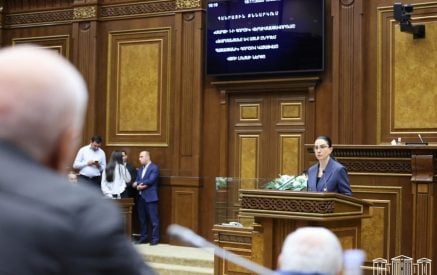Radio Azatutyun. Armenia’s Constitutional Court has delayed until July 9 a keenly anticipated decision on whether former President Robert Kocharian can stand trial on charges stemming from the 2008 post-election violence in Yerevan.
Kocharian, his former chief of staff Armen Gevorgian and two retired army generals went on trial on May 13. A district court judge presiding over the trial suspended it a few days later, saying that the coup charges leveled against them may contradict the Armenian constitution.
The judge, Davit Grigorian, asked the Constitutional Court to pass judgment on a “suspicion of discrepancy” between three articles of the constitution and prosecutors’ claims that Kocharian illegally seized power in the wake of the February 2008 presidential election. Grigorian also suggested that the constitution gives Kocharian immunity from prosecution.
The Constitutional Court said shortly afterwards that it has already started a “preliminary” examination of the appeal. It was due to decide by June 20 whether or not to open hearings on it.
Read also
It emerged on Tuesday that the high court decided late last week to extend that deadline to July 9. It cited the need for an “additional examination” of the issue.
Prosecutors have appealed against Grigorian’s controversial decisions to suspend the high-profile trial and release Kocharian from custody. Armenia’s Court of Appeals is scheduled to start hearings on the matter on Wednesday.
Kocharian’s release angered many political allies and supporters of Prime Minister Nikol Pashinian, who hold the ex-president responsible for the 2008 bloodshed. At Pashinian’s urging, they blocked the entrances to court buildings across the country on May 20.
Kocharian and the other defendants deny the accusations.
Photo – Radio Azatutyun
























































